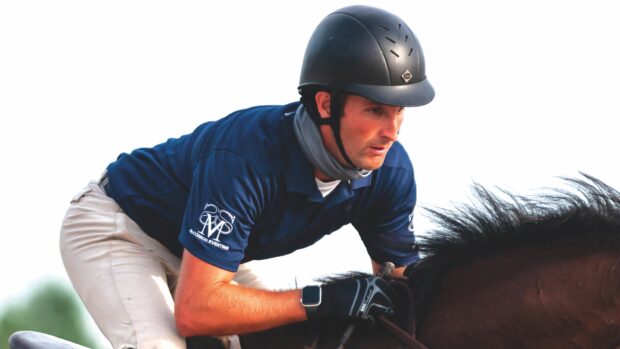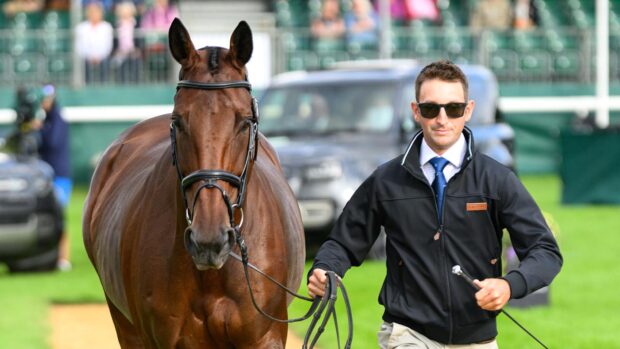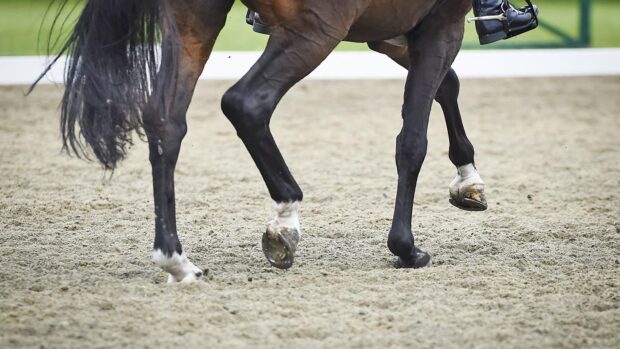An Olympic rider who failed a dope test and claimed he “had never heard of cannabis” – before blaming another country for “sabotage” — has had his Tokyo Games result disqualified.
Egyptian showjumper Mohamed Talaat, 33, tested positive for carboxy THC, a metabolite of cannabis, in a sample taken on 22 August 2019 at the African Games in Morocco. Carboxy THC and cannabis are prohibited in competition, and the rider’s A sample contained an estimated concentration of 608 ng/mL, which is greater than the decision limit of 180 ng/mL.
The African Games organising committee originally dealt with Talaat’s disciplinary process and when he was notified of the failed sample on 16 September 2019, no provisional suspension was imposed. On 14 February 2020 a partial decision was issued by the committee, resulting in his results from the African Games being disqualified.
Owing to “extensive delays” in the disciplinary process, including the rider’s request for his B sample to be analysed – which did not take place until January 2020 – the disciplinary process was transferred to the FEI. Talaat was notified by the FEI on 28 February 2020 of the violation of the human anti-doping rule, and an FEI Tribunal hearing was held on 1 October 2021.
In his written submissions Talaat told the Tribunal he had never knowingly smoked, inhaled or otherwise used cannabis during the African Games, and said before the event, the team manager verified with the hotel about ensuring compliance with the anti-doping rules.
The rider was convinced the only plausible explanation for the positive sample was “inadvertent exposure” to cannabis during team visits to the hotel’s shisha bar in Rabat. On 20 August 2019, he and his fellow athletes visited the bar, where other riders were also present. Following drinks, Talaat ordered shisha but “did not stay very long in order to prepare for the next day’s competition”. After the visit to the bar he reported “he felt sick and believed he may have food poisoning as he was up all night and unable to sleep”, and as a result changed hotels the following morning.
The Tribunal heard from Talaat that smoking shisha is very popular in Qatar, and is a common way for professional athletes to relax. He also said although shisha is very popular in Morocco, a substance called “kief” (Moroccan cannabis) is often used instead or in combination with shisha tobacco, unlike Egypt. He claimed “all precautions were taken” to make sure only shisha tobacco would be smoked by himself and his team.
Dr Borrey, an expert witness for Talaat, stated in her report that Talaat’s exposure to cannabis most probably occurred “unconsciously” during visits to the shisha bar, and even though different values of the drug were detected in some of the other riders’ samples [Sheikh Ali Al Thani and Bassem Mohammed], they could have been exposed to a “similar dose” but had a different metabolic reaction causing varying results.
Talaat stated he is not a cannabis or drug user, adding that it is against his religion and upbringing. He said using a substance such as cannabis, which “does not even enhance performance”, at such an important event, would have been “simply stupid”. He said he had “never heard of cannabis and carboxy THC”, so was “shocked” when he received the results of the adverse finding. Talaat considered it “very implausible” he and his fellow athletes would knowingly put themselves and the team in “such a volatile situation”. He had never tested positive for any prohibited substance, and therefore concluded “keif” must have been deliberately added to his shisha without his knowledge to “influence [the Egyptian team’s] performance in the competition”.
At the African Games, Morocco was the winner of showjumping individual and team final. Talaat believed the results allowed Morocco as a host country to exhibit “exemplary results on its own territory”, having been absent from the Games since 1978. He added that at the time of the event, the Egyptian team were considered most likely to win the showjumping. Consequently he deemed “the stakes were high enough” for the Moroccan team to consider a strategy to gain a clear advantage and is the reason why their shishas were “tampered with a prohibited substance”.
To find out “who had tampered with the shishas”, and whether the person or group was connected to or acting on instruction of the Moroccan team, Talaat confirmed he hired a Moroccan lawyer to file a criminal complaint with the Moroccan authorities. The rider stated that due to the exceptional circumstances, no merits of the Tribunal proceedings should take place until a decision was taken on the criminal complaint, and if necessary apply a retrospective sanction on the outcome of the criminal investigation to assess whether sabotage occurred. It is not clear if the criminal complaint has been finalised.
In its written submissions to the Tribunal, the FEI stated that the violation is a “strict liability” offence, established simply by proof that the prohibited substance was present in Talaat’s sample, and the B sample also confirmed this. The presence of the substance was not disputed by Talaat and therefore the FEI submitted that it had discharged its burden of establishing the rider had violated the rules.
The FEI noted Talaat’s explanation of sabotage by another team, but as the rider did not provide any evidence this was deemed by the FEI “mere speculation”. The FEI requested more information and explanations but Talaat did not respond. Despite Talaat’s claims of “innocent exposure” to cannabis, the FEI considered that even if passive smoking shisha provided a plausible explanation for the adverse finding, Talaat had not submitted any substantiated evidence of such a scenario.
The FEI submitted that Talaat could have perceived the risk of going to the shisha bar and smoking shisha during the event, and by doing so he had not exercised “utmost caution” in his duty of care. The FEI believed he exposed himself to a risk he was already aware of, therefore was at fault for the violation, and requested the Tribunal impose a two-year period of ineligibility.
During the hearing’s closing proceedings, Talaat raised concerns that his rights of defence had been violated by not having his case heard in a timely manner, and the delay was not attributable to him. He claimed “opportunity costs” were suffered throughout the proceedings owing to a two-year period of “immense uncertainty”. Initially he voluntarily did not compete, but since his case did not seem to progress he eventually resumed riding. He claimed the uncertainty negatively affected his results, mental wellbeing and health, and the delay should be reflected in the outcome of the proceedings and a significant reduction in sentence would be appropriate as he had to wait “10 times longer” for his case to be dealt with than what the World Anti-Doping Agency considers timely.
The FEI acknowledged the proceedings had “taken some time” but submitted this was largely due to the fact the source was not established and the arguments put forward were examined and addressed in detail.
The Tribunal considered Talaat’s suggestion of sabotage but noted no corroborating evidence was submitted and such conclusions “could not be formed”. The Tribunal found the rider’s witnesses provided “no clear facts or findings” of sabotage, other than hypothetical claims and therefore no Talaat had failed to establish how the prohibited substance entered his system.
The Tribunal ruled that the FEI had established an anti-doping rule violation to the comfortable satisfaction of the Tribunal, and ordered a two-year period of ineligibility from 17 June 2021. This means all his results from 17 June 2021 are disqualified. This includes his results obtained with Darshan at the Tokyo Games, resulting in the disqualification of the Egyptian showjumping team. The team were 11th in the team qualifying competition, but only the top 10 teams went through to the final.
Talaat was fined 7,500 CHF (£5,981), and must contribute 2,000 CHF (£1,595) towards FEI costs. The rider can appeal the decision to the Court of Arbitration of Sport, within 21 days.
You might also be interested in:

Olympic place lost over claims of deliberate cannabis sabotage
‘To use a substance that did not even enhance the performance at such an important event would be stupid’

‘A clear case of horse abuse’: showjumper banned for using ‘spiked’ hind boots

Subscribe to Horse & Hound magazine today – and enjoy unlimited website access all year round
Horse & Hound magazine, out every Thursday, is packed with all the latest news and reports, as well as interviews, specials, nostalgia, vet and training advice. Find how you can enjoy the magazine delivered to your door every week, plus options to upgrade your subscription to access our online service that brings you breaking news and reports as well as other benefits.




